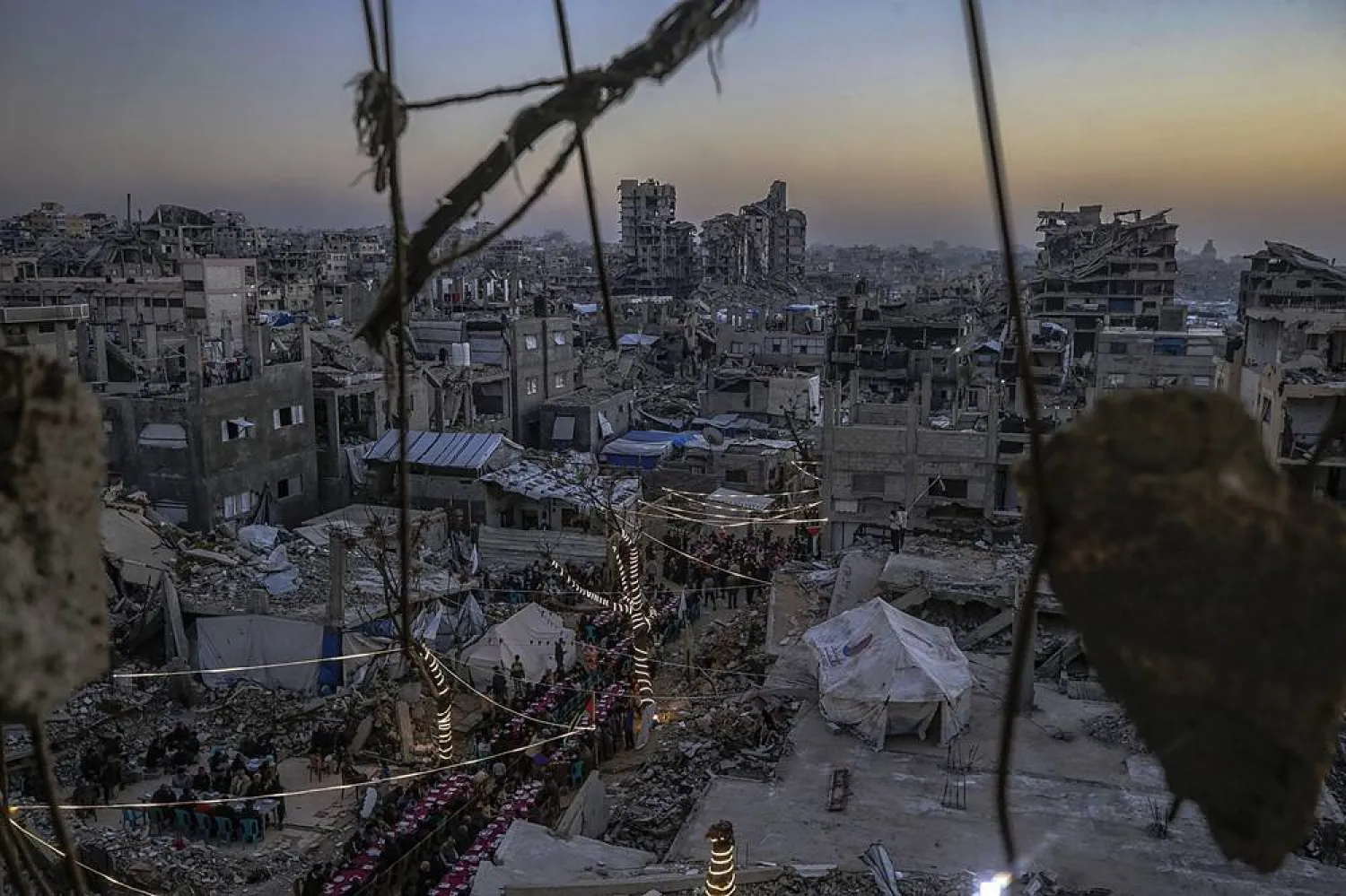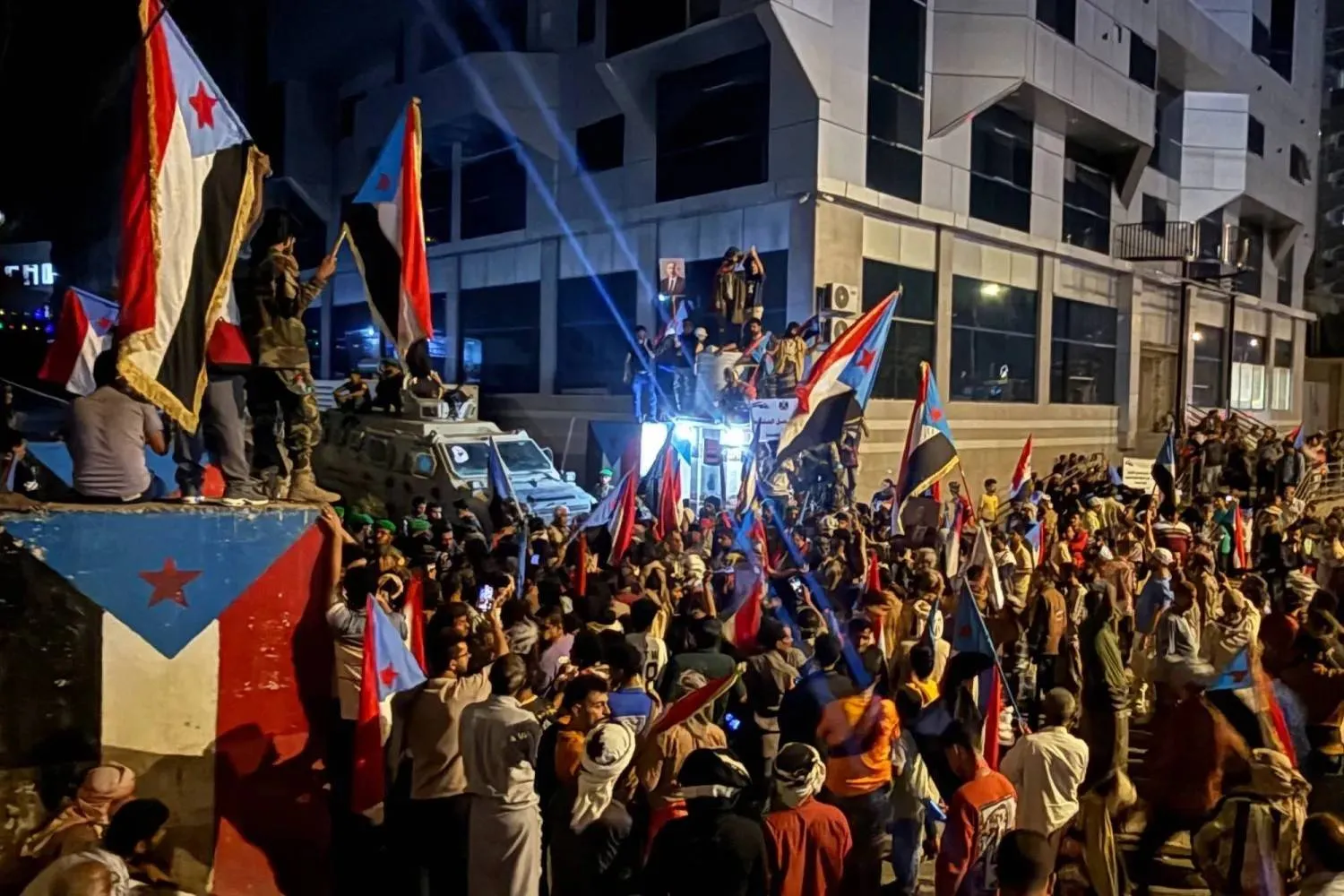Head of Iraq’s Taqaddum party and former parliament speaker Mohammed al-Halbousi expressed on Tuesday his fierce opposition to a draft law related to the enlistment and retirement of members of the Popular Mobilization Forces (PMF).
In a post on the X platform, Halbousi accused PMF leader Faleh al-Fayyadh of abusing his position for “partisan goals.”
Parliament is expected to discuss the draft law on Wednesday.
The law raised questions over political influence within the PMF, a military group that was formed in 2014 and that became an official state institution in 2016.
The law in Iraq prohibits military officials from using their position for electoral purposes or to work in politics. They must resign from their position before pursuing political interests. Fayyadh has repeatedly been accused of flouting this law.
Fayyadh is already the head of a political bloc that enjoys influence in a number of provinces. It is currently vying for government posts in the Nineveh council.
Fayyadh has also been accused of using PMF funds to finance his al-Ataa movement.
Halbousi criticized the draft law for undermining the independence of the military and security agencies as stipulated in the constitution.
The law allows the leader of the PMF to also act as a head of a political party and therefore, he would be able to employ the PMF and its forces for his political agenda, added Halbousi.
He wondered whether the draft law would be used for “unacceptable electoral and political purposes”.
A source close to the Taqaddum party said Fayyadh designed the draft law to “serve his electoral ambitions.”
In remarks to Asharq Al-Awsat, he added that the law “sets no boundaries between Fayyadh’s political role and his position as head of the PMF.”
Moreover, he noted that the law allows Fayyadh to send into retirement any member of the PMF, a power he could use against a vast number of members to secure their vote in elections.
A leading member of the pro-Iran Coordination Framework said Halbousi’s attack against Fayyadh may be supported by some Shiite forces that want to remove him from his post.
The official revealed that the Asaib Ahl al-Haq group was among Halbousi’s strongest backers in this regard.
The group has long been planning on ousting Fayyadh, 68, so the draft law is unlikely to be ratified without amendments, he went on to say.
Leader of the Asaib Ahl al-Haq Qais al-Khazali had previously called for Fayyadh’s ouster because he has exceeded the legal age for the position and because he is the leader of a political party.
As of 2024, the PM boasts 238,075 members. It initially had no more than 60,000 when it was first formed in 2014 to fight the ISIS extremist group.
The number of its members kept growing even after ISIS’ defeat in Iraq, sparking accusations that leading members were adding fake names to the PMF for financial gain.
In 2019, former Prime Minister Haidar al-Abadi accused some PMF leaders of “mysteriously making fortunes from public funds.”
On Monday, independent MP Sajjad Salem called for “criminalizing the possession of weapons outside the state and merging the PMF with the security forces to prevent Iran from exerting its influence through its proxies in factions and militias.”
The Iraqi state budget revealed that around 3 billion dollars (some 4.5 trillion dinars) are allotted to the PMF with hundreds of billions of dinars dedicated to salaries and the purchase of weapons.









